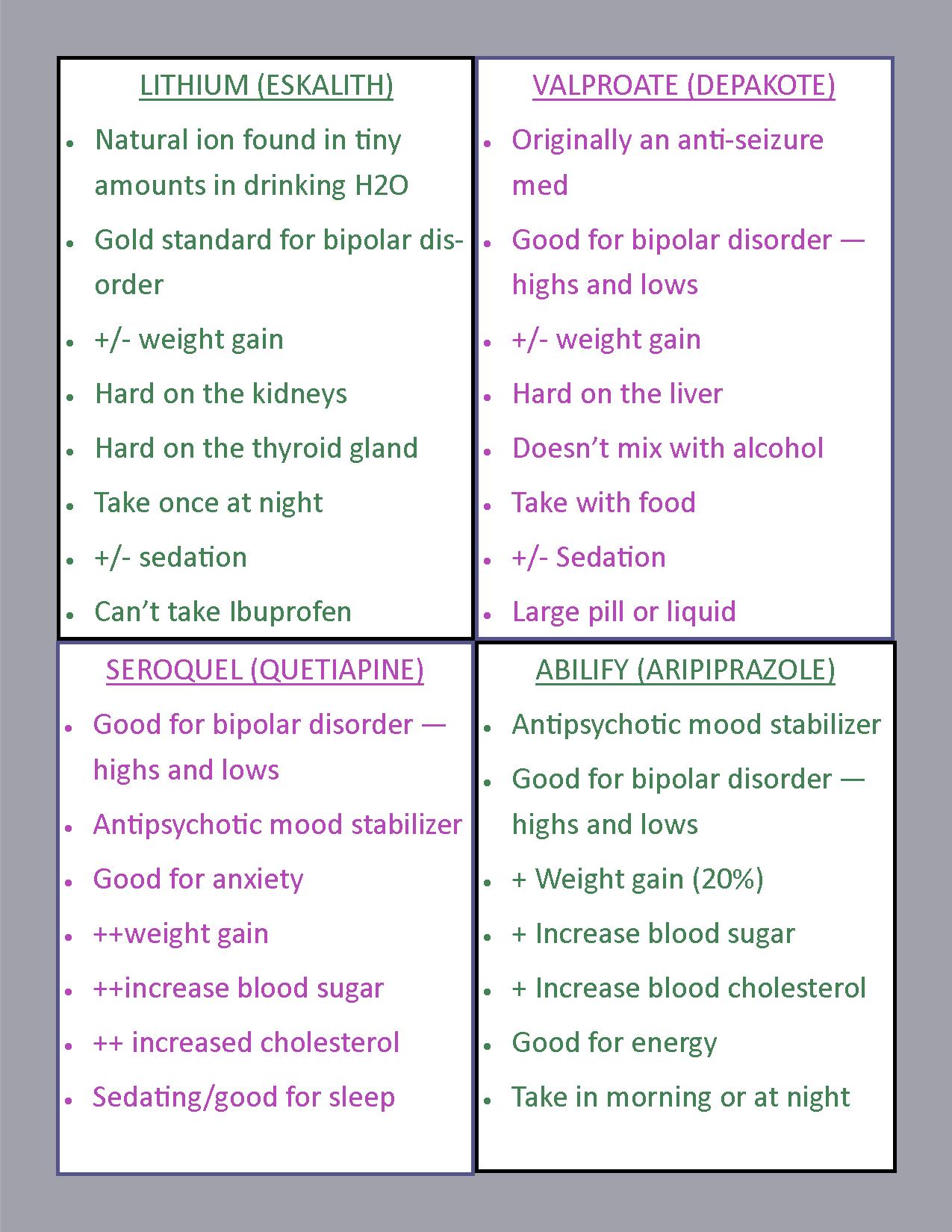
Antipsychotic Mood Stabilizers
The Good, the Bad, and the Ugly
THE GOOD
Originally developed for hearing voices in schizophrenia, but so many other uses!
Great for bipolar mania
Most Antipsychotic Mood Stabilizers (AMS) treat bipolar depression as well
Good addition to antidepressants for moderate to severe unipolar depression
Safe for kidneys and thyroid
Most are generic
Taken once daily
Most help you sleep! (But some give you more energy without the sedation)
Not a lot of medication interactions
Yearly blood tests to check cholesterol and blood sugar
THE BAD
Often cause sleepiness (this can be a good thing!)
Can increase blood cholesterol (needs to be checked annually)
Can increase blood sugar and the risk for diabetes (needs to be checked annually)
Mild to moderate weight gain is possible/common
THE UGLY
Uncommon: AKATHISIA
- “Restless legs all over my body”
- Not fatal, but uncomfortable
- Can be easily reversed with beta blockers, a blood pressure medication
Very rare: TARDIVE DYSKINESIA
- Involuntary muscle movements, usually of the face or tongue
- This is more common at higher doses of AMS
- 1/3 of the time, it does not go away
- There are several new medications on the market that are good at treating this if it persists after the medication is stopped
- Seroquel (quetiapine) has the lowest risk


